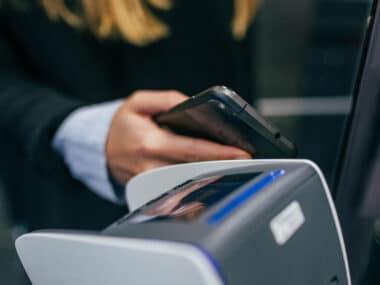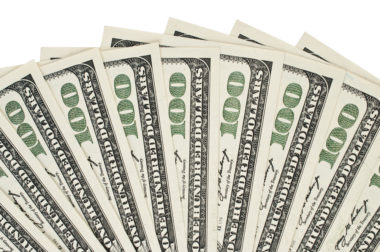In 2019, student debt in the United States reached over $1.5 trillion. A great deal of that debt is shouldered by millennials and more will soon be racked up by other young people as they graduate college.
If you’re one of those that are trying to resolve your debt in a timely manner, there are quite a few good reasons to do so. In fact, there are legitimate reasons to try to pay off your student loans before you even hit 30 years of age.
Table of Contents
Why Pay Off Student Loans in Your 20s?
While there are many reasons to pay off your student loans as early as possible, here are a few of the most pertinent reasons:
Less Interest
As any accountant will tell you, the longer you take to pay back a loan, the more you’ll pay in interest.
For instance, if you take out a 30-year mortgage for $50,000, you’ll end up paying back nearly $50,000 in interest (along with the money you initially borrowed). If you opt for a 15-year mortgage, though, the amount of interest drops to less than half of the borrowed sum.
The point is, if you pay off any loan aggressively, you’ll end up saving yourself significant amounts of money that would have gone into interest payments.
Financial Freedom
While debt is a normal part of life for the average American, it’s still important to at least try to live debt-free.
By paying off your student loans quickly, you can establish your financial freedom at a young age, remove some of the financial stress, and free up your finances for forward-thinking investments in your 30s and beyond.
Retirement
One of those forward-thinking investments that can truly pay you back in spades is investing in your retirement.
If you can pay off your student loans in your 20s, you’ll be able to invest more into an IRA or 401(k) plan in your 30s. This will give your hard-earned retirement savings ample time to grow over multiple decades before you reach retirement age.
How to Pay Off Student Loans in Your 20s
Of course, understanding why it’s a good idea to pay off your student loans in your 20s is very different from actually doing so. Below are a few suggestions for efficient ways that you can begin to pay down your college debt as quickly as possible.
Avoid Certain Repayment Plans
There are many different kinds of repayment plans for student loans. Some of these are structured for a long period of time (and typically higher overall interest) such as an extended repayment plan or a Revised Pay as You Earn plan. If you want to pay off your student loans quickly, look for a more traditional payment model such as a standard repayment plan.
Avoid Taking on More Payments
Once you graduate college, it will be tempting to begin to take on other debts. For instance, if you get a job, you may feel the need to splurge on a new car, quality professional clothing, or a better apartment.
However, always think twice before taking on new debts and payments that could divert cash from your student loans. At this early stage in life, it’s much better to trim your budget and cut corners wherever possible in order to free up more money to pay off your already existing debt.
Create/Update Budget
Along with avoiding new debt, it’s wise to revamp or update your budget. If you don’t have a budget yet, now is a good time to make one. A budget allows you to track your income and expenses, see where you can save money, and ensure that you’re actually funneling funds towards your debt on a regular basis.
Make Extra Payments
One of the simplest ways to pay down your debt quickly is to make extra payments, whether they come from a financial windfall such as a tax return or 50 extra dollars that you earn during an extra shift at work. When you do this, your payment will typically go against the principal of the loan (in other words, none of the cash in an extra payment needs to go towards interest).
Make Bi-Weekly Payments
If you’re notoriously bad at making extra payments, you may want to consider a bi-weekly payment plan. This splits your monthly payment plan in half and has you pay your smaller payment every two weeks instead of once a month.
The primary benefit of this plan is that when you pay every two weeks, twice a year you naturally make a third payment in a single month — and that third payment can go directly towards your principal, shaving weeks, months, and sometimes even years off of the term of your loan.
Pay Off Capitalized Interest
If you’ve opted for something like a loan grace period, you may have capitalized interest on your loan. Capitalized interest is simply unpaid interest that is added to the principal of your loan. This increases the amount of principal that is used to calculate future interest. If you have capitalized interest, try to pay it off as quickly as possible, as this will free you up to start chipping away at the actual principal of the loan that is creating all of the interest in the first place.
Refinance Your Loans
If you have high interest rates on your student loans, you may want to consider refinancing them. This can often dramatically reduce the amount of interest you’re paying each month and, by extension, help you pay down your principal faster.
Set Up Auto-Pay
Along with bi-weekly payments, setting up an auto-pay schedule that you know you can maintain is a great way to “force” yourself to pay back your loans quickly. The gentle pressure of knowing that funds will automatically be withdrawn from your account on a regular basis can help you think through (and often avoid) other unnecessary expenses.
Take Advantage of Tax Deductions and Credits
There are often tax deductions and credits that you can utilize as you pay back your loans. For instance, you could deduct as much as $2,500 from your taxes if you paid the equivalent sum in student loan interest.
In addition, try to repurpose any extra tax credits or deductions, whether they’re related to your school loans or not, into repaying your debt. Annually putting lump sums towards your principal is a great way to pay it down at a rapid pace.
Image Source: https://depositphotos.com/





